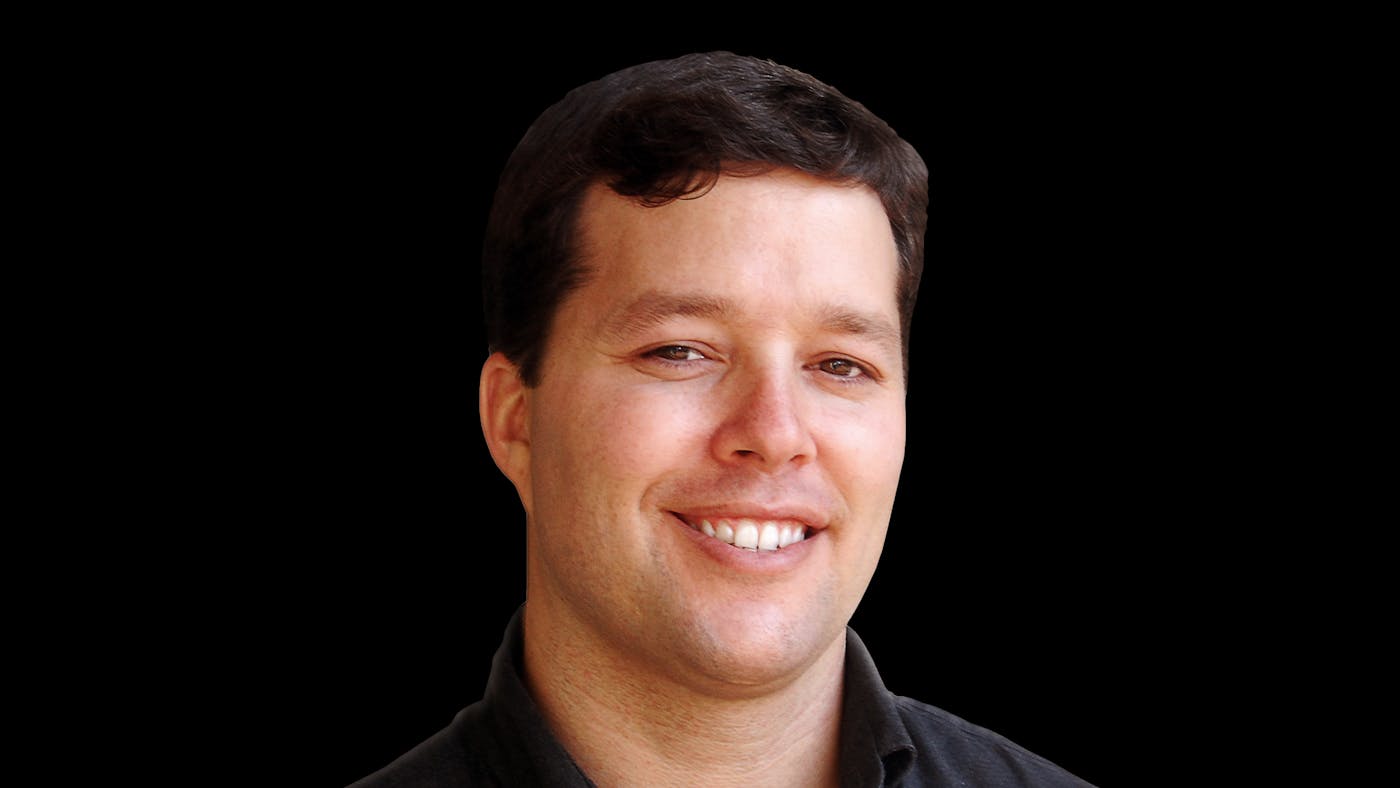
Hi Friends—
I'm working to bring you new episodes with John Pierson, Joel Simon, David Andrés León, and other exciting guests.
Today's episode is a follow-up with Andy Payne on Grasshopper 2's new features, recorded live after Andy's episode was released.
Thanks to everyone who chatted with us during the YouTube premiere.
Let us know your thoughts on the video comments.
Submit your questions at gettingsimple.com/ask.
Warmly,
Nono
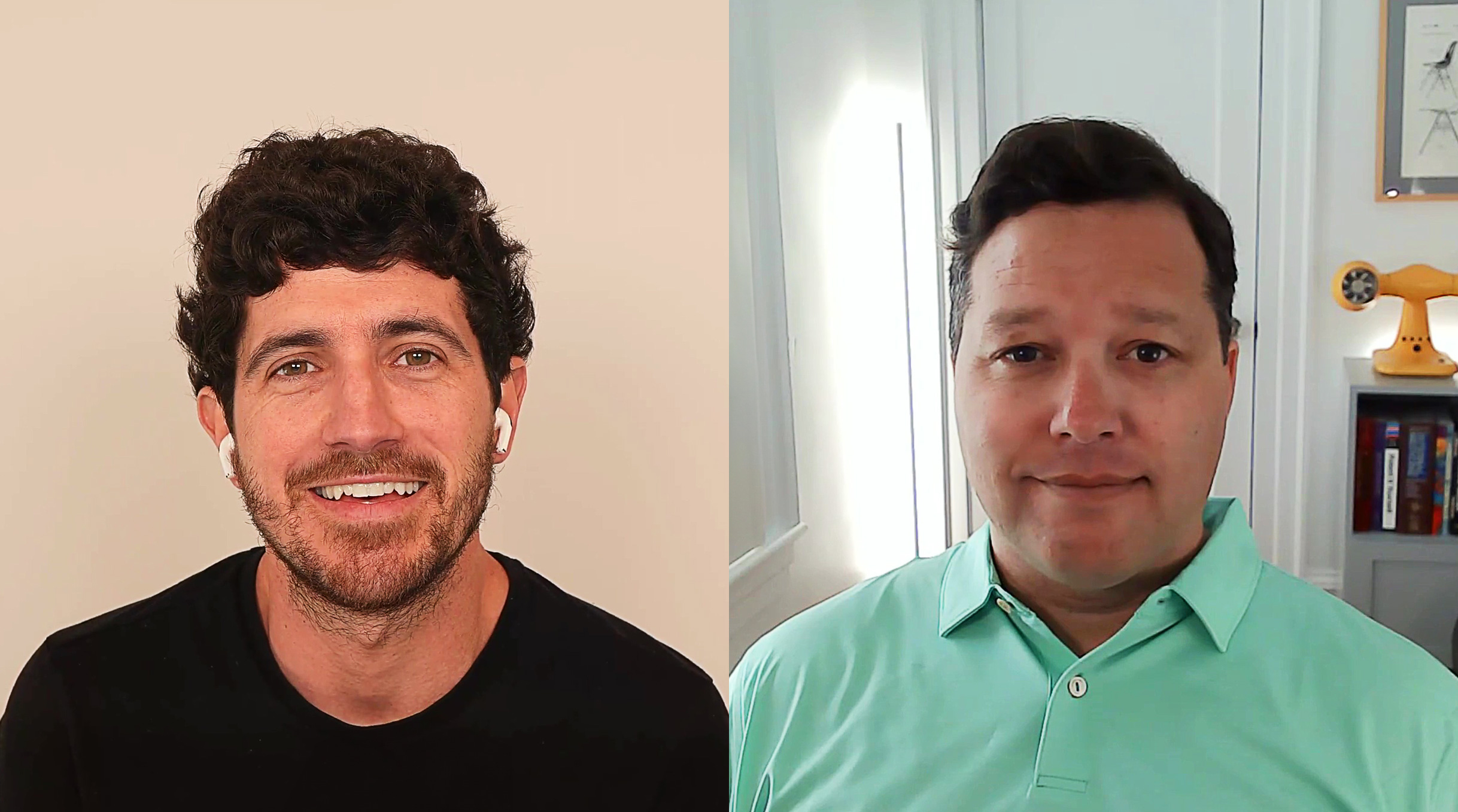
00:00 · Introduction
00:50 · Grasshopper 2
03:03 · Data types
04:44 · Content Cache component
06:35 · Rhino Compute
07:37 · Object attributes
08:36 · New features
08:51 · Shouts
09:50 · Visual diffing and graphics
10:24 · Figurines
11:33 · Installing Grasshopper 2
12:32 · Andy's day-to-day
13:39 · 3D tools

Hi Friends—
Andy Payne is an architect and software developer at McNeel, the company behind Rhino and Grasshopper 3D.
I met Andy in the summer of 2016. Autodesk had acquired Monolith (a voxel-based editor) from Andy and Pan earlier that year. I joined them as an intern to build a generator of 3D-printed material gradients and play with a Zmorph 3D printer.
We recorded a podcast conversation in New Orleans in September 2022, where I learned about Andy's latest adventure.
Enjoy this episode on the origins of Grasshopper, Grasshopper 2, Rhino.Compute, teaching, learning to code, generative AI, open-source code and monetization, and Andy's journey.
Thanks to everyone who chatted with us during the YouTube premiere.
Let us know your thoughts on the video comments.
Submit your questions at gettingsimple.com/ask.
Warmly,
Nono
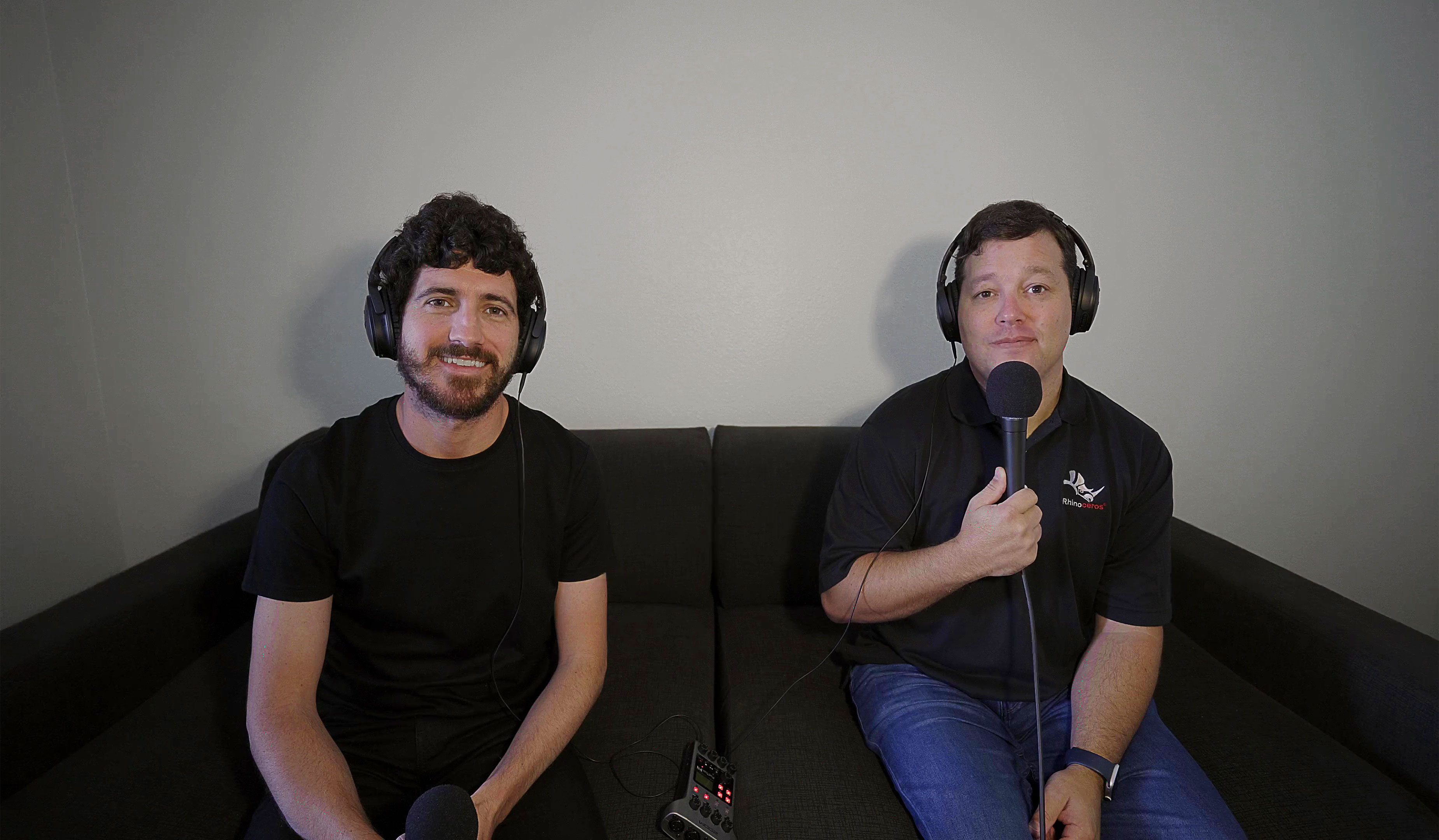
00:00 · Introduction
00:35 · Andy Payne
04:11 · Grasshopper origins
07:23 · Andy meets Grasshopper
09:19 · Grasshopper Primer
10:26 · Grasshopper 1.0
13:22 · Grasshopper 2
15:11 · Developing Grasshopper
16:59 · New data types
18:57 · Rhino Compute & Hops
22:32 · Cloud billing
27:05 · Teaching
30:07 · Visual programming
36:23 · Open source & monetization
42:03 · McNeel Forum
50:07 · Connect with Andy
51:57 · Learning to code
58:00 · Generative AI
01:02:09 · The IKEA effect
01:05:38 · Authorship
01:08:56 · AI trade-offs
01:12:58 · Panagiotis Michalatos
01:16:02 · Advice for young people
01:17:08 · Success
01:18:35 · $100 or less
01:20:12 · Outro

Hi Friends—
Alex O'Connor is a researcher and machine learning manager.
I had the chance to pick his brain on the latest trends of generative AI — transformers, language and image models, fine-tuning, prompt engineering, tokenization, the latent space, adversarial attacks, and more.
Thanks to everyone who chatted with us during the YouTube premiere.
★ I'm excited to celebrate Live 100 with Special Guests tomorrow, April 27, at 1:30 PM ET with a conversation on creative machine intelligence with Adam Menges, Joel Simon, José Luis García del Castillo, and Kyle Steinfeld.
I'd love for you to join us live at nono.ma/live/100.
Warmly,
Nono
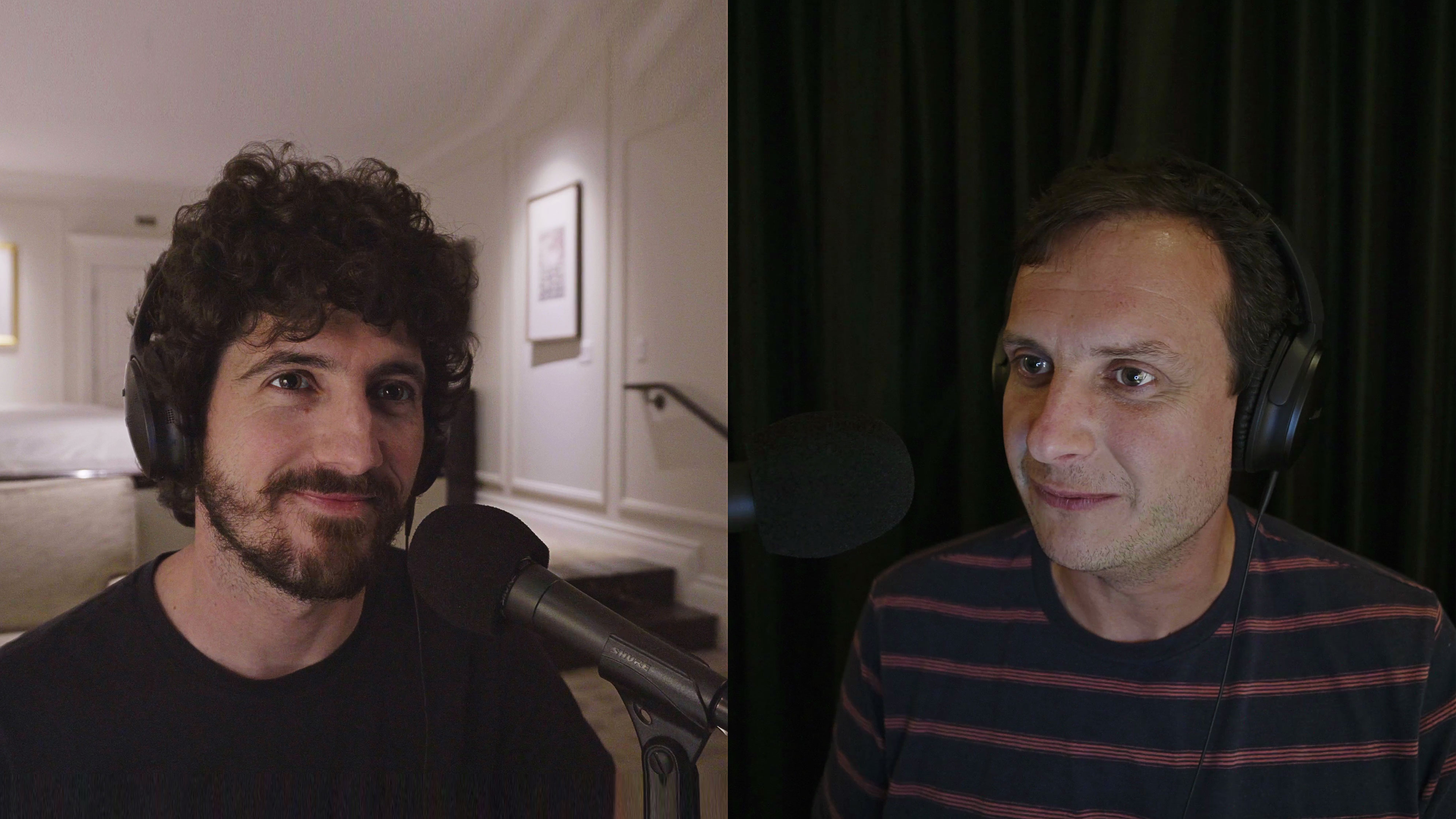
Recorded at The Palazzo, Las Vegas on December 2022.
00:00 · Introduction
00:40 · Machine learning
02:36 · Spam and scams
15:57 · Adversarial attacks
20:50 · Deep learning revolution
23:06 · Transformers
31:23 · Language models
37:09 · Zero-shot learning
42:16 · Prompt engineering
43:45 · Training costs and hardware
47:56 · Open contributions
51:26 · BERT and Stable Diffusion
54:42 · Tokenization
59:36 · Latent space
01:05:33 · Ethics
01:10:39 · Fine-tuning and pretrained models
01:18:43 · Textual inversion
01:22:46 · Dimensionality reduction
01:25:21 · Mission
01:27:34 · Advice for beginners
01:30:15 · Books and papers
01:34:17 · The lab notebook
01:44:57 · Thanks

Hi Friends—
Zach Kron was the second guest of the podcast back in December 2017. Since then, I've enjoyed many conversations with him that would have been a great fit for the show.
I recently visited Zach's studio in Sommerville, Massachusetts, where we talked about making (and selling) pen plotter art, evolving with your projects, creativity, capturing ideas, and remote work.
I loved recording this conversation in person and on camera.
Let me know what you liked on the YouTube video comments, and remember, you can submit your questions about this or any previous episodes at gettingsimple.com/ask.
I hope you enjoy it!
Warmly,
Nono
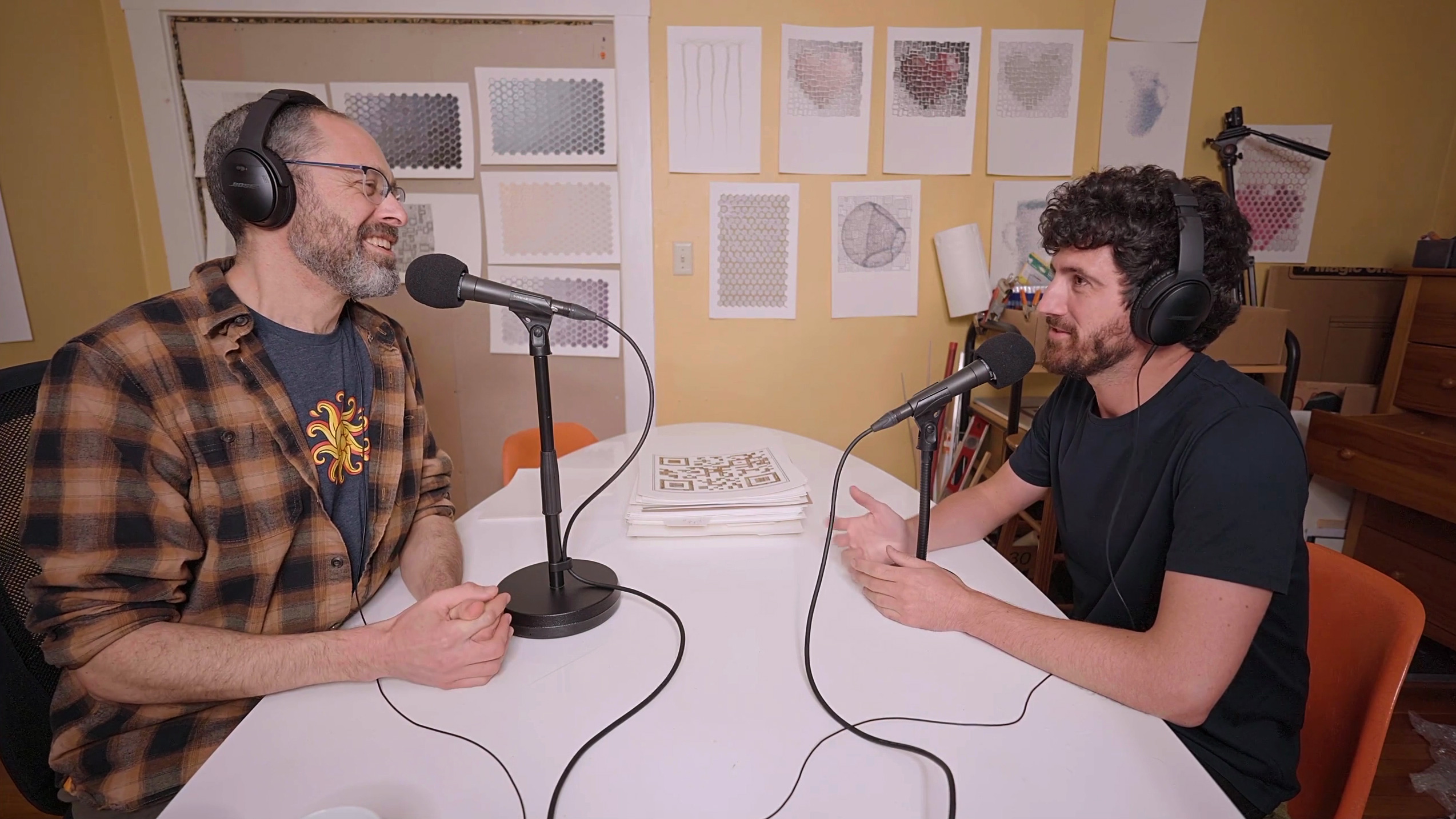
00:00 · Intro
01:00 · Evolution of this podcast
09:46 · Freediving
12:16 · Capturing ideas
13:25 · People are different in person
15:54 · Evolving with your projects
20:10 · Connecting with your audience
21:20 · Live vs. offline
26:19 · The creative medium
30:00 · Selling art
38:46 · Pen plotter art
46:34 · Making art with Dynamo
50:31 · Art
01:02:53 · Funktionlust
01:05:09 · Remote work
01:11:54 · Outro

Hi Friends—
I recently had a conversation with Steve — who wants to build a YouTube channel about the joy of making and listening to music, emphasizing health and well-being — where I shared tips on producing a podcast, building an audience, booking guests, content formats, motivation, goals, and other insights from five years of podcasting.
This episode may be helpful if you're thinking of starting a podcast or YouTube channel or if you want to learn about my podcasting workflow.
Steve’s questions (below) acted as a guide for our conversation.
Remember that you can submit your questions at gettingsimple.com/ask.
Warmly,
Nono
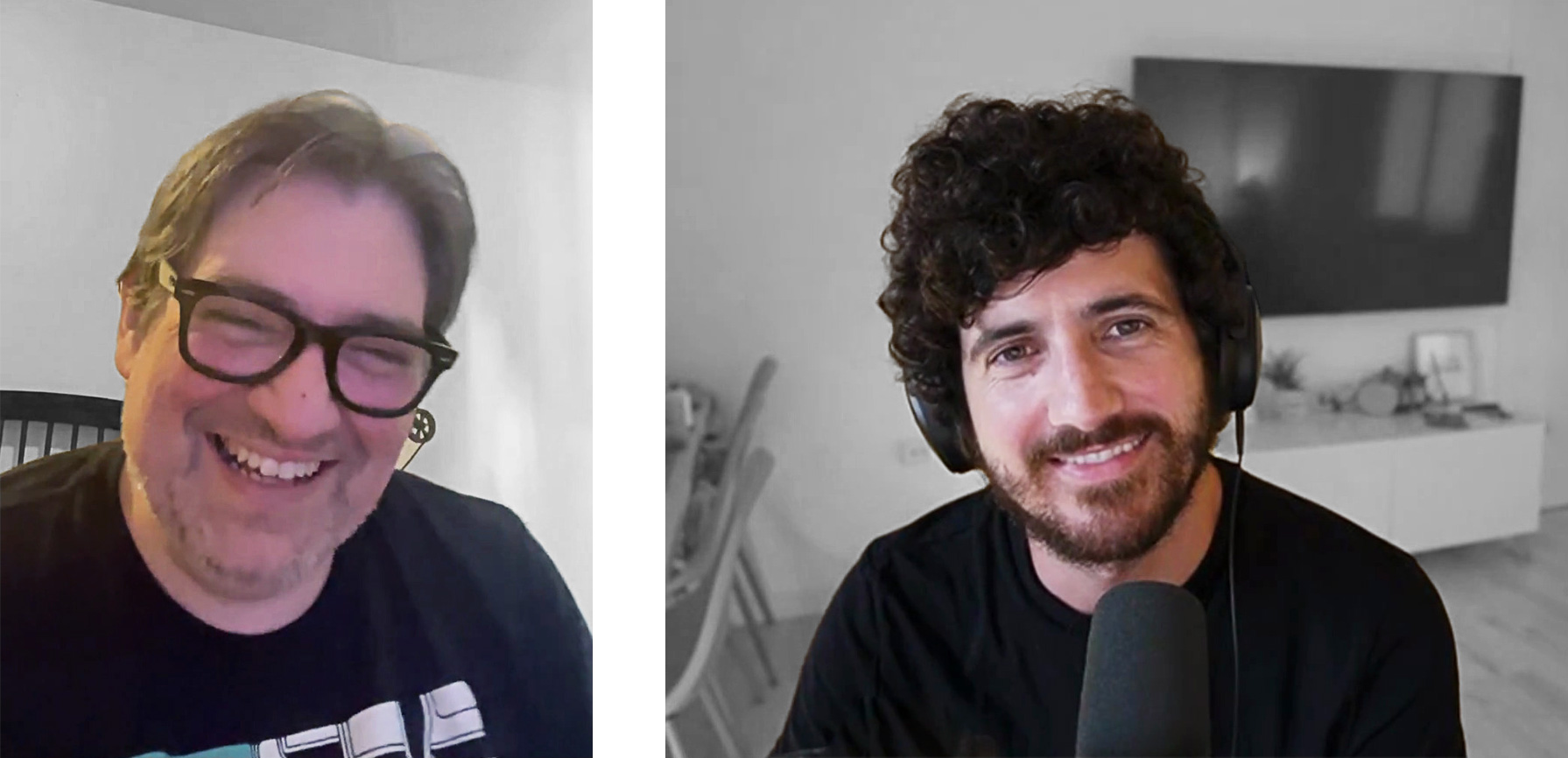
00:00 · Introduction
00:58 · Start
01:55 · Steve's idea
03:45 · Passion for music
04:37 · Podcasting
05:20 · Motivation
08:04 · Recording and editing
09:07 · Guests
11:40 · Building an audience
14:01 · Long-form conversations
15:34 · Process
17:33 · Goals
21:51 · Evergreen content
24:14 · Monetization
25:38 · Start lean
29:30 · Outline
31:59 · First episodes
33:17 · Outro

Hi Friends—
Today I bring you a new conversation with Leire Asensio Villoria and David Mah on decoding and upgrading design systems, reverse engineering the creative process, knowledge dissemination, the long tail of niches, Erwin Hauer and associative models, book writing and publishing, and much more.
Leire and David collaborate as asensio_mah, an international design practice with projects in Europe and Australia, including Casa Q, a new-build residential commission in Spain that integrates digital fabrication techniques with traditional construction practices as well as landscape engineering and design.
Listen to "Leire Asensio Villoria and David Mah — Systems Upgrade"

00:00 · Introduction
00:36 · Erwin Hauer
02:22 · Associative models
04:18 · Erwin Hauer's model making
07:03 · Limitations of digital tools
09:39 · Systems Upgrade book
11:10 · Reverse engineering
26:09 · Decoding Erwin Hauer
30:21 · Authorship and knowledge dissemination
36:48 · Visual programming
41:39 · Selling less of more
46:54 · Individualizing everything
49:23 · Context
53:18 · Book writing and publishing
01:02:49 · Creative process
01:11:13 · AI content generation
01:17:42 · Thanks
01:18:43 · Outro

Hi Friends—
Today I bring you a new conversation with Frank Harmon, an old friend who taught me architectural design at North Carolina State University, Raleigh, back in 2012, and inspired me to look at the world differently.
Frank is a renowned award-winning architect, professor, writer, and an avid sketcher who always has a sketchbook with him.
He writes to find out what he’s thinking and draws to understand what he’s looking at to ensure he doesn’t forget it.
In this episode, we talk about writing, drawing, design, life, and how digital technologies make the world completely placeless. "It’s too late to stop [the internet], but what we can do as architects and artists and writers is give people a sense of place where they are."
Frank believes we can make places that have something physical and concrete grounding us in an otherwise unlimited digital world.
Listen to "Frank Harmon — Writing, Drawing, and Sense of Place"
00:00 · Introduction
01:14 · Writing
05:00 · Becoming an architect
06:21 · Frank's book
07:19 · Living in London
09:03 · Studying abroad in the US
13:37 · Childhood place
20:38 · Born with screens
23:39 · Design
27:42 · Place
33:41 · Good architecture
37:10 · Bad architecture
38:48 · Frank Gehry's middle finger
39:31 · Native Places: Drawing as a Way to See
43:47 · The best way to write
44:23 · The purpose of sketching
45:45 · Thanks
46:09 · Outro
I've added a new section to Getting Simple's website header titled Ask a Question through which you can send video or audio questions for me to answer on the podcast.1
Voice notes are submitted via SpeakPipe and can be recorded with most modern browsers.
Videos are uploaded via Dropbox File Requests and can be recorded with a smartphone or any camera as long as you can upload the video file to Dropbox using the web form.
I invite you to ask a question about any of the topics we discuss in the podcast and the live stream.
The page at gettingsimple.com/ask has been there for a while. What's new is the header menu item linking to it and the option to upload video files via Dropbox File Requests. ↩

Hi Friends—
Today I bring you an episode on my first impressions and experiments with OpenAI’s text-to-image generation AI system DALL-E 2, three mini-essays on the creative process and being done, and blogging tools you can use to publish online.
Listen to "DALL-E 2, The Creative Process, and Blogging Tools"

00:00 · Introduction
00:39 · An incoming conversation with Frank Harmon
01:34 · Episode contents
01:55 · DALL-E 2 and AI systems
06:45 · What can DALL-E do?
09:54 · GPT-3: Language models
12:05 · Mini-Essays on the creative process
12:15 · Mini-Essay: The meaning of done
13:38 · Mini-Essay: If it's no fun, you shouldn't do it
15:33 · Mini-Essay: Another one of those
16:51 · Writing series
17:51 · What does Nono use for blogging?
22:45 · Outro

Hi Friends—
Today I bring you a short episode from the sketches series in which I share my experience traveling to the US and meeting people in person for the first time after the COVID-19 pandemic.
Listen to "Sketches — It's Nice to See You, In Person"
00:00 · Start
00:10 · It's Nice to See You, In Person
06:05 · Back from Atlanta
07:34 · Podcast updates

Hi Friends—
Today I bring you a solo episode in which I revisit my current habits and passion projects. I share my thoughts on the podcast, the blog and sketches, the YouTube channel and the live stream, my new recording studio, monetization, crypto, and the importance of learning and play.
Looking forward to hearing what you think!
Listen to "Habits & Passion Projects"
00:00 · Introduction
01:34 · Daily habits
05:08 · Active projects
07:27 · Blog
09:11 · Sketches & stories
15:06 · Studio
17:06 · Podcast
21:36 · YouTube channel
23:24 · Knowledge anxiety
24:43 · Anything, not everything
25:45 · Monetization
28:41 · Learning and play
32:22 · Crypto and digital art
36:21 · I need your help
39:50 · Outro

Hi Friends—
Today I bring you a new conversation with Andrew Witt, who teaches at Harvard University and recently published Formulations, a book that explores how computational tools that encapsulate mathematical methods are short-circuiting the path to expertise, blurring the distinction between dabbler and virtuoso, and democratizing access to the systems and aesthetics of mathematical design.
Please enjoy Andrew’s second podcast appearance in which we discuss how mathematical design transforms how we think, design, and make art, how Andrew managed to get such a big project together, and his take on writing, creativity, work, life, machine intelligence, and digital art.
Listen to "Andrew Witt — Formulations, Mathematical Design, and Writing"
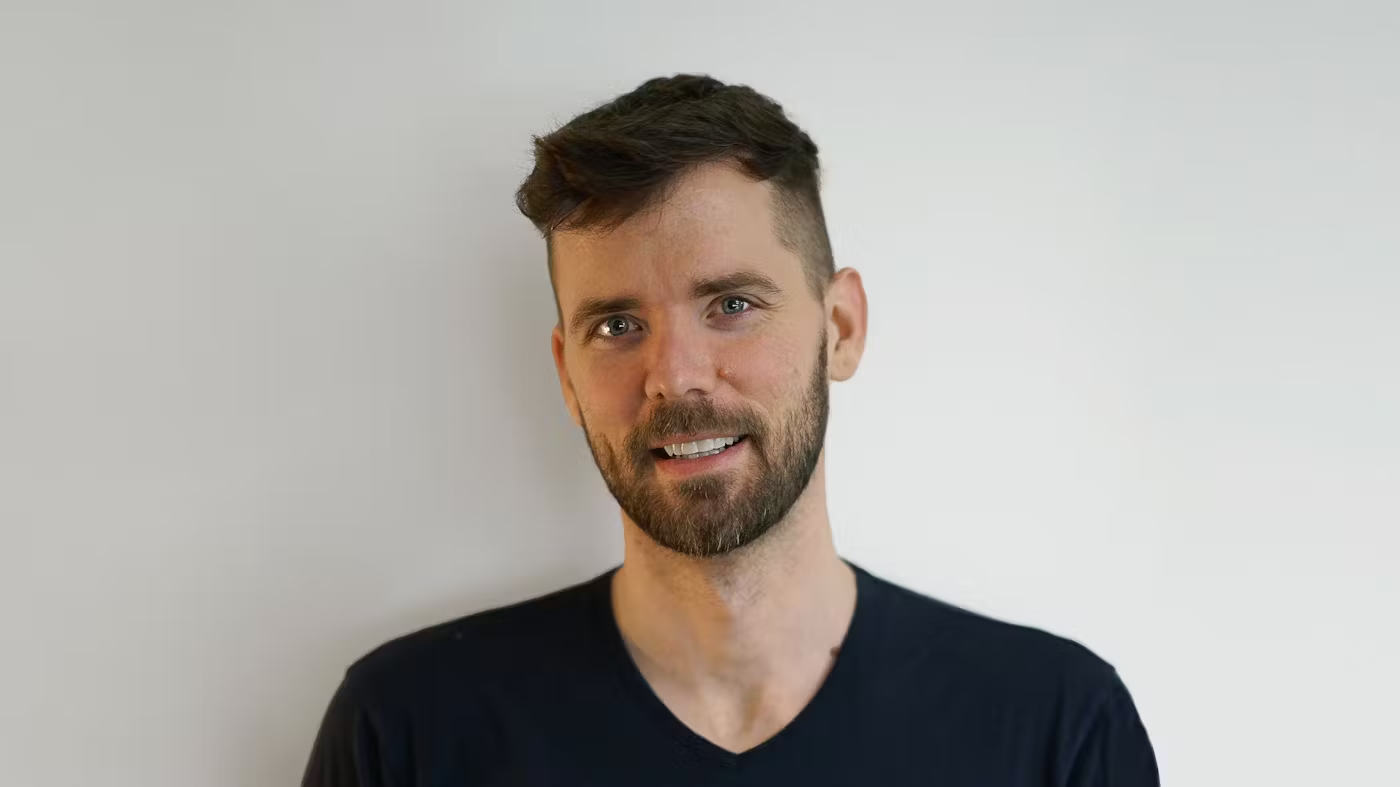
Hi Friends—
Today I bring you a new conversation with Adam Menges, a former Apple employee and founder at Lobe, a company acquired by Microsoft that aims to make deep learning accessible.
Please enjoy Adam’s second podcast appearance in which we discuss the role of visual programming languages, social fintech, thoughts on Bitcoin and digital art tokens, and lessons learned building successful software products during and after pandemic times.

Hi Friends—
In this episode, Nate Peters and I discuss the latest developments of digital art and generative NFTs, the importance of being intentional, the advantage of established creators, and the fast pace of artificial intelligence and crypto.
We’re no experts, so please don’t take our words as financial advice. We just hope our conversation sheds some light in your own path to learning more about the world of digital currencies, machine learning, and technology.
Take a look at this episode's topics in the notes and chapters below.
Enjoy!
Listen to "Nate Peters — NFTs, Generative Art, Making Your Own Tools & Online Attention"
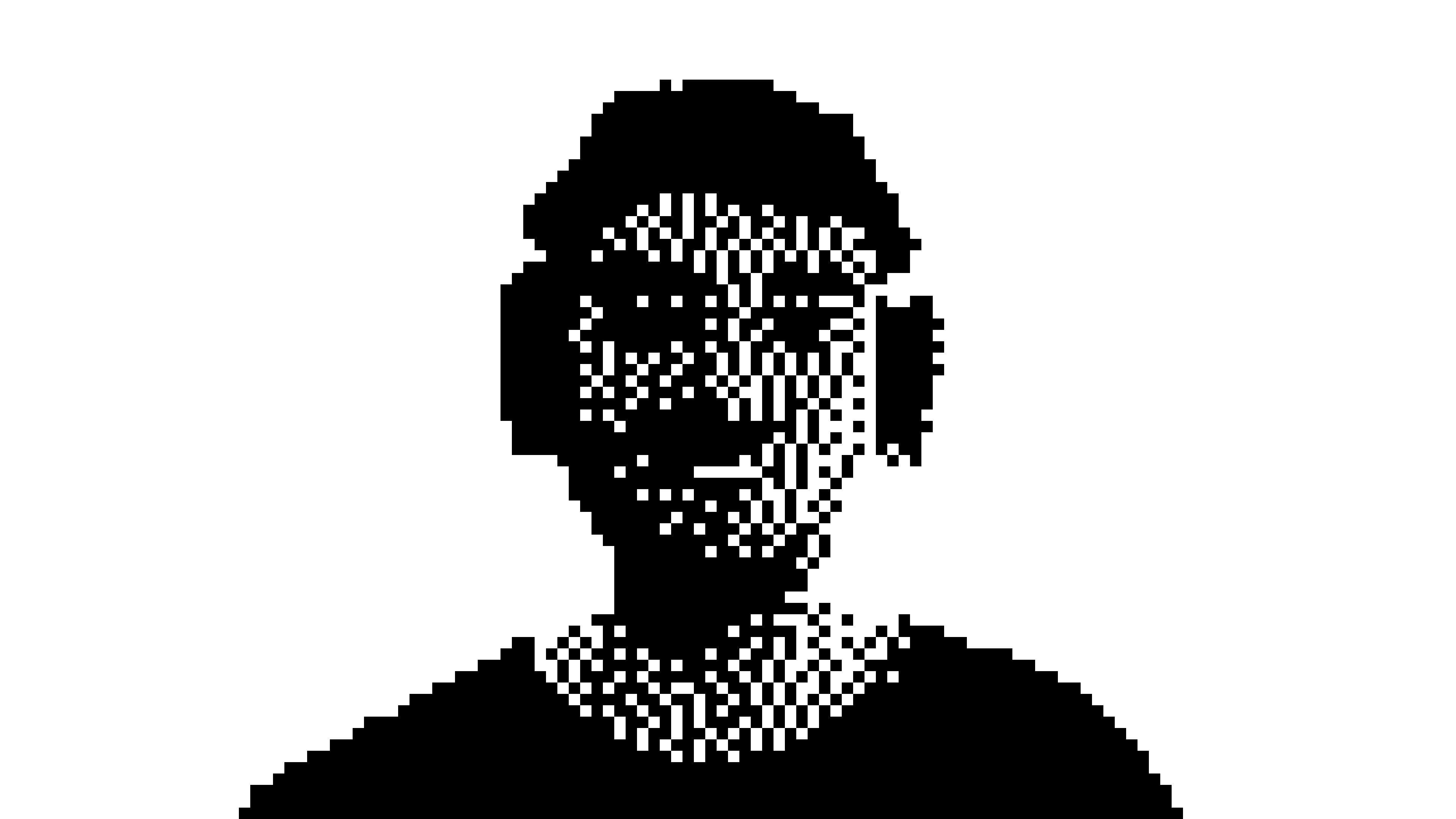
Hi Friends—
Today, I bring you a conversation with an anonymous guest on blockchain and cryptocurrencies, smart contracts, the security of digital wallets, the convenience of centralization, promoting positive moral behavior, impostor syndrome, being a constant newbie, and lots more.

Hi Friends—
I first met Jordan in North Carolina back when I was an exchange student on my fourth year of architecture school. We soon realized we shared many creative interests and curiosities.
Ten years later, we bring you a long-form conversation on creative friction, the fine line between passion projects and work, storytelling in design, overcoming the beginner feeling, and lots more. (Take a look at this episode’s chapters to get a better picture of the topics we covered.)

Hi Friends—
Happy new year! 🥂
The following is an episode celebrating 2021 and my achievements in podcasting, live streaming, sketching, and writing over the past year. I also added a note on why I think you should start writing, in public.

Hi Friends—
As we embrace new technologies, we delegate more and more tasks and decisions to the machine. In turn, algorithms permeate our daily lives—say, influencing what we listen to, watch, read, or who we interact with—yet few of us know how they use our information and make decisions for us.
In this episode, I talk to Aziz about how complex machines work, technological polarization, and the growing need to make algorithms understandable.
Listen to "Bytes — The Black Box"

Hi Friends—
We hosted two live events on YouTube to record a two-part podcast celebrating one year of live streams. The second part, out now, features a conversation with Jose Luis García del Castillo on teaching and coding live.
We talk about friction and automation, community, practice, content creation, and how the podcast and the live streams have evolved.
Special thanks to the community and to everyone who joined us live. ❤️

Hi Friends—
We hosted two live events on YouTube to record a two-part podcast celebrating one year of live streams. The first part, out today, features audience questions on the challenges and evolution of the channel after a year of streaming (almost) weekly.
I mentioned way too many things in this episode, so I tried my best at linking to most terms and technologies in the notes below.

Hi Friends—
It's hard to keep up with the fast-moving world of digital currencies and the new age of digital art.
In this new episode of Bytes, Aziz and I talk about non-fungible tokens (NFTs), blockchain, cryptocurrencies, and digital art.

Hi Friends—
Today, I bring you an informal chat with Nate Peters, a friend and former guest of the show—a conversation on the machine learning-based audio-editing solution this podcast is being produced with, web components, React and UI libraries, the effects of COVID-19 in our work lives, NFTs and cryptocurrencies, and the new informal catch-up conversation podcast format we're testing out.
We were screen-sharing during part of this conversation and no recording is available. But we've compiled a detailed list of episode notes, and the YouTube video includes a full transcript as closed captions.
Listen to "Machine Learning-Based Audio Editing, React, UI Libraries, NFTs, and COVID"

Hi Friends—
Today, I bring you a two-minute episode on reclaiming our time with the help of automation. It's an audio version of a short essay I published on July 21, 2020.

Hi Friends!
Today, I bring you an insightful conversation with Mike Gabour, a good friend of mine whom I admire and have been meaning to get into the show for a while. I love the attention he puts into everything he does and his peaceful and quieting worldview. Listening to him talk is soothing.
I hope you enjoy learning how Mike fell in love with the Ocean, his take on mindfulness, meditation, attention, and love, his experiments with dark showers, the Sensorium, a detailed commentary on the contents of his backpack (of which we'll share a video in the coming weeks), and much, much more.
Without further ado, let's dive into Mike's mind.
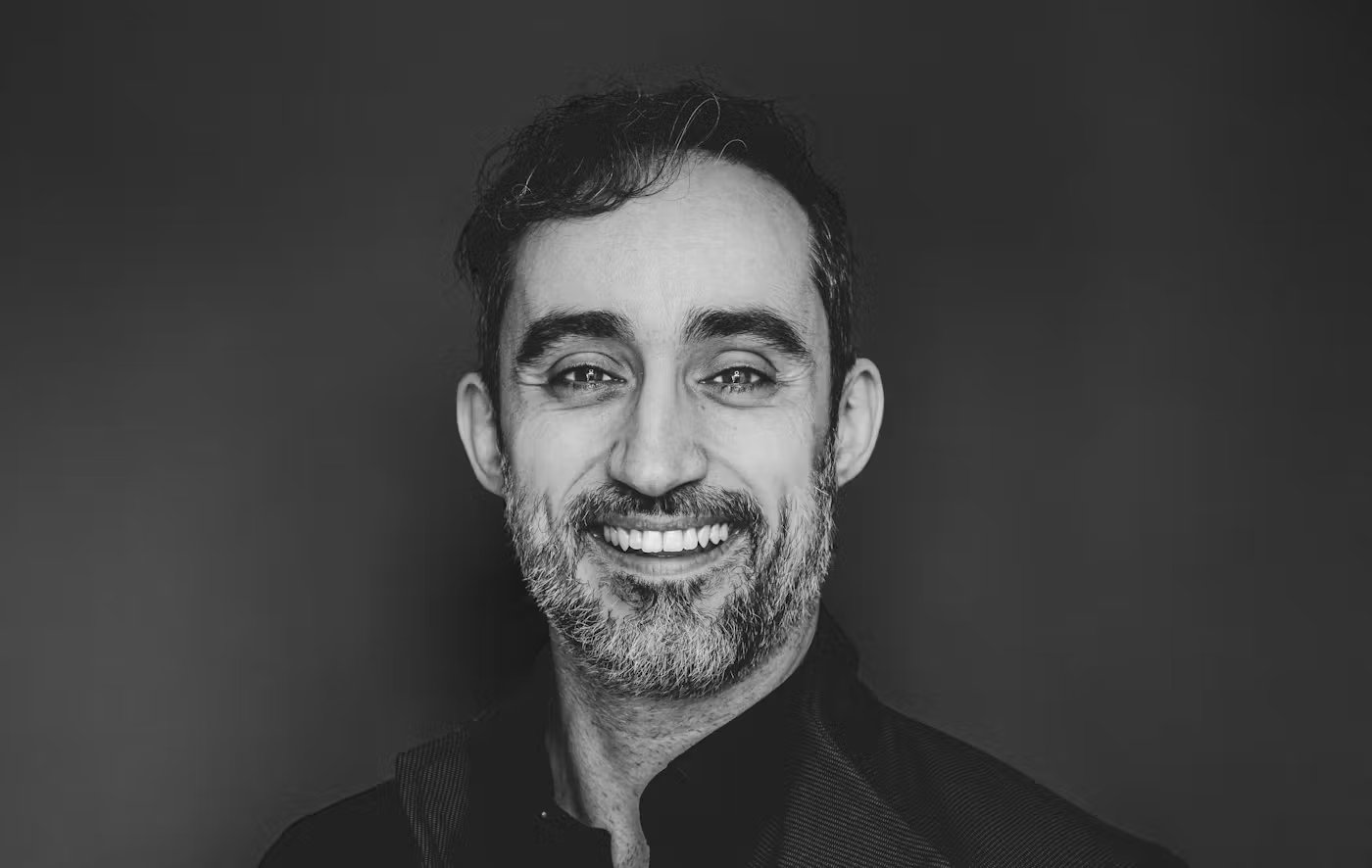
Hi Friends!
Right before the turn of the year, I bring you a brand new episode that opens up the ALGO series—conversations between Jose Luis Garcia del Castillo y López and myself on topics such as teaching, coding, machine learning, and creativity.
It's been three years since I last interviewed Jose Luis, and I enjoyed learning how his life changed when he became a Doctor of Design, began teaching at Harvard, and started live-streaming his lectures online.
We also discuss the guilt of postponing things, the difficulties of delegating tasks and micro-management, the fear of shipping creative work, and lessons learned after forty podcast episodes.
Please enjoy.

Hi, Friends!
For the last episode of Getting Simple, I answered a question submitted by a listener: During your commute, do you listen to music or podcasts?
I'd love to hear from you. Ask a question.
Listen to: "Music or Podcasts? Commuting, Meditative Walks, and Solitude"

I fixed a bug that sporadically made Spotify remove my show, the Getting Simple podcast, from its platform without any logical explanation and, more worrisome, without warnings or notifications.
Some time ago, I noticed the podcast's RSS feed displayed episode release dates localized in Chinese and other languages. Something that, to my eyes, seemed random. Yesterday, I finally identified the issue.
The XML feed is cached for thirty minutes at a time — a duration I set to avoid overloading the server by re-generating the feed on every request.
But this feed re-generation used the requesting party's "locale." This code corresponds to the language and region configured in the system that performs a web request. For instance, the en-US locale represents a visitor or bot configured to use the English language and the United States region. A localized site — that can adjust its content to different locales — would display a date as Wed, 02 Dec 2020 for en-US visitors and as Mié., 02 Dic. 2020 for es-ES visitors.
date('D, d M Y H:i:s O');
// returns "Wed, 02 Dec 2020 05:19:14 -0500"
This date('D, d M Y H:i:s O') PHP method uses the operating system's language and region to determine what to display, but a localized website can adjust to the visitor's locale or even comply with explicit requirements.
App::setLocale('en-US'); // force locale to en-US
Item::formatDate(Date::now(), 'D, d M Y H:i:s O')
// returns "Wed, 02 Dec 2020 05:22:55 -0500"
App::setLocale('es-ES'); // force locate to es-ES
Item::formatDate(Date::now(), 'D, d M Y H:i:s O')
// returns "Mié., 02 Dic. 2020 05:22:55 -0500"
The issue was that the re-generation of the podcast feed was dependent on the requesting agent's locale when the cache expired, which could be any user or bot. Spotify was pinging the podcast and could load a feed generated by an agent that used a locale other than English in the past thirty minutes.
App::setLocale('en-US');
// Generate episode timestamps here
When Spotify found dates were not in English, it removed the show altogether—something that Apple Podcasts and other networks didn't do—and then added the podcast back hours later, when episode dates were in English again.

Spotify took its time to reload all existing episodes after forcing the localization of episode timestamps to use the en-US locale and re-generating the feed. Now all episodes and their stats are back. Hopefully, the show won't disappear again, and users won't hit this ugly, erroring embedded player.
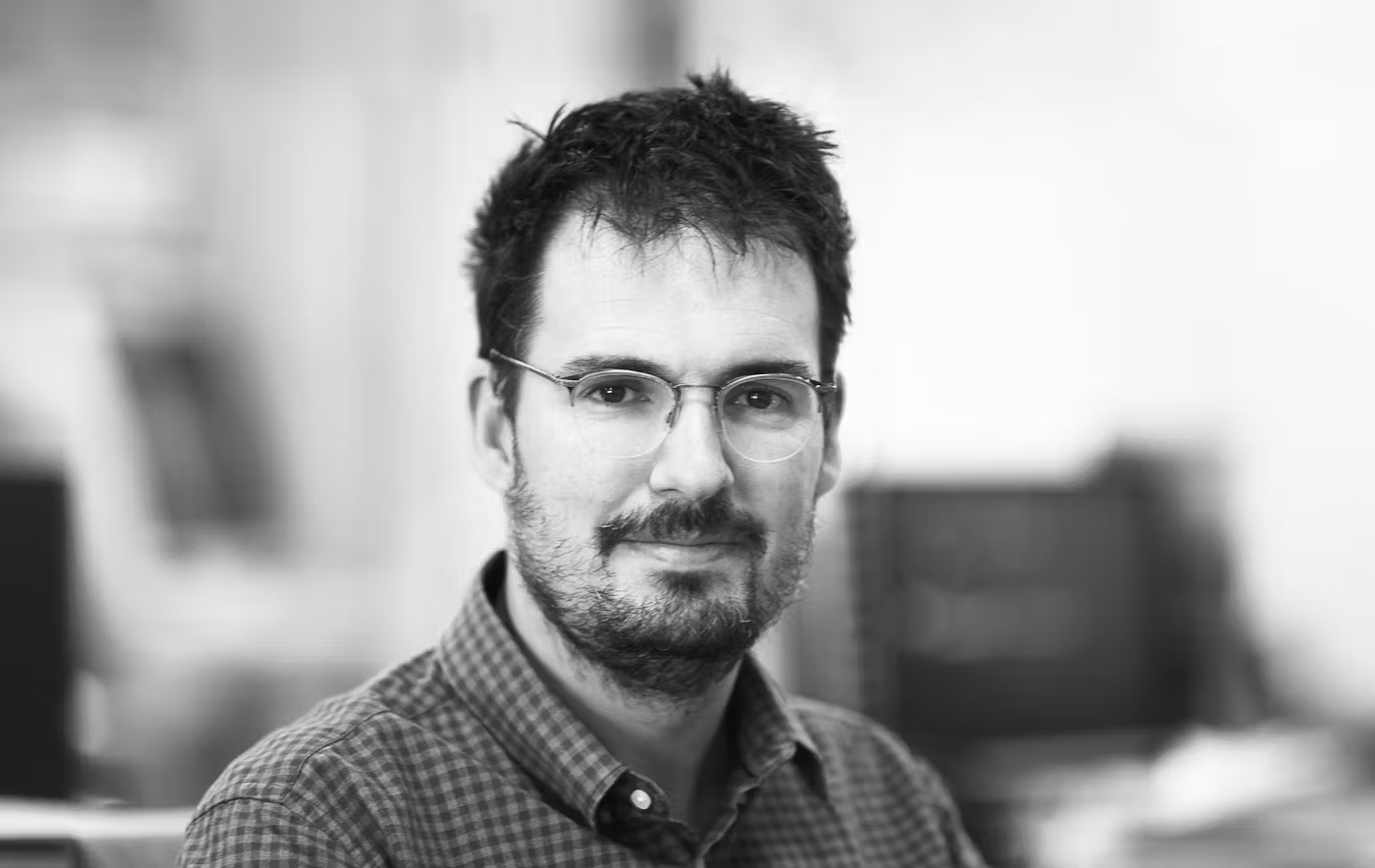
Hi, Friends!
For the last episode of Getting Simple, Roberto Molinos highlights the benefits of being patient and embracing uncertainty and shares a series of techniques, theories, and books that can help you rethink your company, market your products, and have a 4-day workweek.
Listen to: "Roberto Molinos — Plan for Failure: The Peace of Mind of Being Patient and Antifragile"

Hi Friends!
Today, I bring you an episode that celebrates a year and a half of weekly sketches and stories. At the time I published this essay on my blog, I was at fifty-three publications. But as I write these lines, I'm at seventy-one posts. Happy Newsletter-versary!

Hi Friends!
For the last episode of Getting Simple, I had the chance to talk to Microsoft's Adam Menges, former employee at Apple and founder at Lobe.ai, a company that helps people build intelligence into their apps by making it simple and understandable.
Tune in to discover Adam's unconventional education and career, why he strives to have death present in his day-to-day, and his life hacks and daily routines, including custom-made clothing, note-taking and file-management workflows, meditation, and much more.
Listen to: "Adam Menges — Lobe: Machine Learning Made Simple" ↗︎